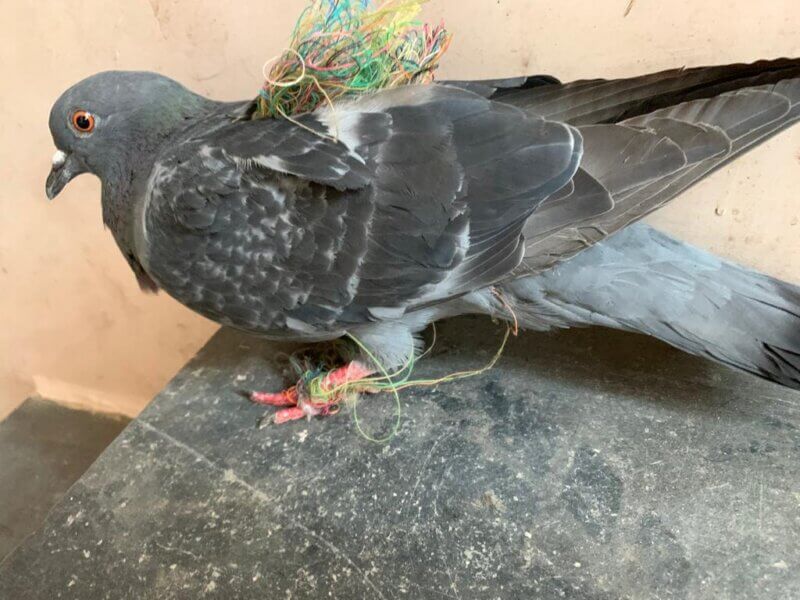Punjab Government Prohibits Use of Glass-Coated Cotton and All Other Forms of Manja Following PETA India Appeal
Following an appeal from PETA India to address bird and human deaths caused by manja, the Punjab Department of Science, Technology & Environment has amended its existing policy and issued a revised notification under Section 5 of The Environment (Protection) Act, 1986, that mandates, “Kite flying shall be permissible only with a cotton thread free from any sharp/metallic/glass components/adhesives/thread strengthening materials.”
This prohibition of metal- and glass-coated cotton string and other deadly variants supplements a ban on nylon manja to prevent harm to humans, birds, other animals, and the environment. The notification states the following:
There shall be a complete ban on the manufacture, sale, storage, purchase, supply, import and use of kite flying thread made out of nylon, plastic or any other synthetic material including the popularly known “Chinese dor/manjha” and any other synthetic kite flying thread which is [coated] with synthetic substance and is non-biodegradable as well as any other kite flying thread that is sharp or made sharp such as by being laced with glass, metal or any other sharp materials in the State of Punjab.
The notification underlines the pollution and other harm to human and animal life caused by this string. It cites the power failures that sharp manja causes when it interferes with power lines, affecting up to 10,000 people with only one disruption. These threads are often ingested by cows and other animals, leading to life-threatening conditions. Notifications with similar directions have previously been issued by the governments of Chandigarh, Delhi, Haryana, Himachal Pradesh, Maharashtra, Telangana, and Tripura.
Manja, in all its forms, puts humans, birds, other animals, and the environment at risk. Razor-sharp strings, often reinforced with glass powder and metal, cause injuries and many senseless deaths every year. Earlier this year in Amritsar, a girl received 44 stitches after sharp manja lacerated her face, and a boy in Phagwara received 30 stitches in his face and neck after sustaining wounds inflicted by reinforced kite thread. In Mohali, sharp kite thread landed a man in the hospital after he sustained lacerations to his fingers and nose. And a 4-year-old boy in Ludhiana who poked his head out of a car window had to be given 120 stitches and undergo surgery after the string became stuck to his face.
The harmful thread also has a disastrous impact on bird populations. Birds’ wings and feet are often slashed or even cut off by manja. Although birds frequently manage to escape despite their severe wounds, rescuers can’t help them, and many of them bleed to death slowly and painfully. In January, the Jivdaya Charitable Trust in Gujarat reported that more than 1,600 birds injured by manja were brought in for treatment during the two weeks surrounding Uttarayan. In the first week of January 2023 alone, 482 birds – including several migratory birds – were injured by manja in Gujarat.









